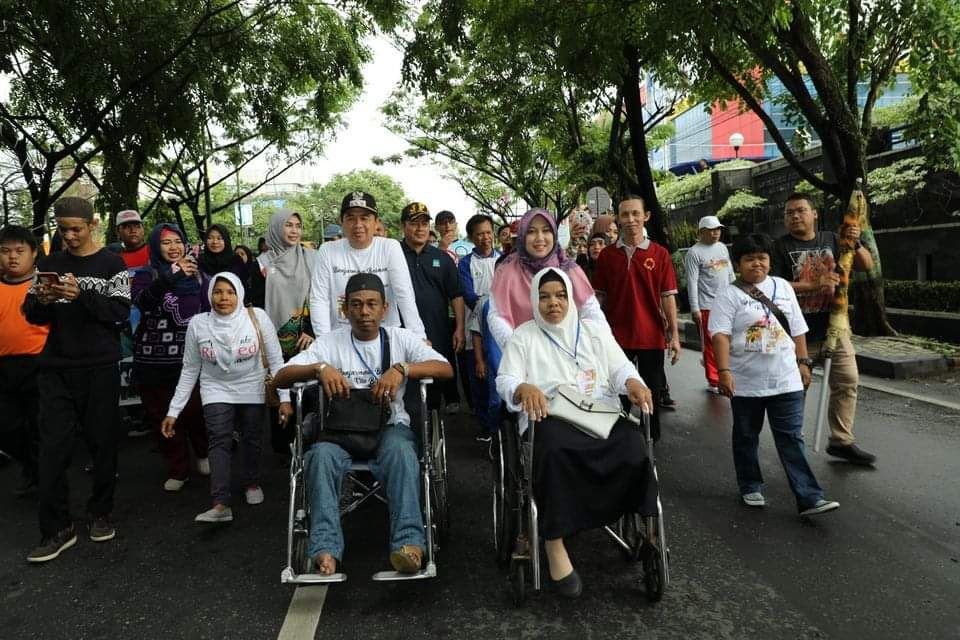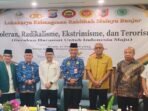Banjarmasin – Inclusion friendly city is not as easy as like turning your palm. It needs a real process and real work of the policies taken by local leaders.
In the hands of Ibnu-Herman’s leadership, Banjarmasin is the first city in Indonesia to have a roadmap for an inclusive city, so Banjarmasin can be directly supported by UNESCO to develop an inclusive city program.
Besides UNESCO, according to the Mayor of Banjarmasin, Ibnu Sina, Banjarmasin is also collaborating with Kota Kita Surakarta, Kaki Kota Banjarmasin, Global Disability Innovation Hub, University College London and GIZ Germany to create an Inclusive Banjarmasin City.
This city of a thousand rivers has also been lined up to host the 8th Mayor Meeting of the Inclusive Cities Affection.
In addition, Banjarmasin is the only city in Indonesia that won the 2019 Global Urban Mobillity Challenge in Leipzig City, Germany. For the achievement of this award, Banjarmasin also received the Transformative Urban Mobility Initiative (TUMI) amount of Rp. 2 billion for the development of infrastructure for the Inclusion City along with 9 other cities from around the world.
“Until today, we are still trying to carry out policies that are in accordance with the roadmap for the inclusive city,” said Ibnu.
In fact, Banjarmasin has built infrastructure that is friendly to persons with disabilities. Like the construction of disabled-friendly sidewalks to government offices, special facilities and infrastructure for people with disabilities have also been built.
This can be seen in the construction of pedestrians along Jalan Belitung, along Jalan A. Yani km 2-6 Banjarmasin as well as making toilets for people with disabilities.
There are also inclusive villages built at the sub-district level. Meanwhile, for education, there are dozens of elementary and junior high schools which are inclusive and equipped with free public transportation for people with disabilities.
He mentioned that there are three aspects in terms of building a disability-friendly city, there are, regulation, provision of public services and finally acceptance from the community.
Anang Fadhilah/Hamdani









